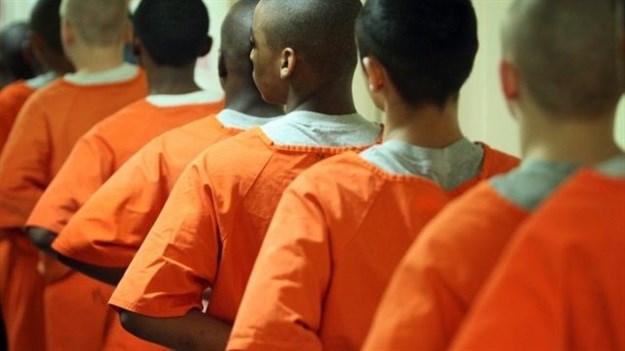
Top stories






More news





















ESG & Sustainability
Lesotho Highlands Water Project contractor suspended for polluting rivers

ESG & Sustainability
Plan to use properties owned by City of Cape Town for homeless project





Following an emotive debate on the issue, with most parties showing support for the Bill, with the exception of the EFF, the Deputy Speaker passed the Bill and referred it to the National Council of Provinces for concurrence.
The Child Justice Act came into operation on 1 April 2010.
The Act sets out how children in conflict with the law are to be dealt with in the criminal justice system.
During the debate ahead of the Bill being passed, Justice Deputy Minister John Jeffery said the Act has been successful in reducing the prison population of children by providing alternative sentences and diversion.
He said one of the key issues when Parliament was processing the original Justice Act was the question of what age does the child have criminal capacity; in other words, at what age does a child have the mental ability to distinguish right from wrong and understand the consequences of their actions and accept responsibility.
Before the Child Justice Act was passed, the criminal capacity age in South Africa was seven years, so a child over seven could be held criminally liable.
“When the Act was passed, there was then a debate around what the age should be.
“There were some members of the committee at the time who thought that 12 was a more appropriate age. On the other hand, we faced the reality of public opinion and a society that has had enough of crime.
“There was also an issue of children being used by adults to commit crimes, and both solicited strong views so the solution in the original Child Justice Act was to move it up from seven to 10 [years old] and required the Minister of Justice to submit a report to Parliament to review the minimum age for capacity. This report was duly done and submitted to Parliament in 2016 and this Bill gives legal effect to the recommendations of that report,” Jeffery said.
He said various debates on the minimum age for criminal capacity around the world show that it is a complex, “emotive” one.
Jeffery pointed out that the United Nations Committee on the Rights of the Child considers anything below the age of 12 as not to be internationally acceptable.
“The States are encouraged to increase their minimum age to 12 as the absolute minimum and to continue to increase it by a high level. If we look at the rest of the African continent, 12 is in line with international trends.”
He said this varied across the African continent, with the minimum age for criminal capacity in Swaziland and Zimbabwe still being at seven years, in Kenya eight years, Ethiopia nine years, Cameroon and Côte d'Ivoire at 10 years, Uganda 12 years, Egypt 12 years, Ghana 12 years, Angola 14 years and Cape Verde 16 years.
“The provision would still remain that a child between the ages of 12 to 14, the State must prove that they have criminal capacity, but they can be diverted. In the past, they could only be diverted when criminal capacity was established. They can now be diverted if the magistrate, the presiding officer, believes that the child can benefit from the diversion programme. We feel that would be very useful.
“There is also a provision in the Bill that the age of criminal capacity must be reviewed again and the Minister of Justice must submit a report within five years of the Act coming into effect on the age of criminal capacity,” Jeffery said.
He said while there were suggestions that the minimum age of criminal capacity be raised to 14, government decided against raising the age too fast so as to avoid being confronted with unintended consequences.
“The Child Justice Act, which makes provision of what happens to a child who does not have criminal capacity, may be reported to a probation officer or social worker and various things can then happen – a referral to the Children’s Court if the child is not being properly looked after, a referral to counselling and so on.
“So we need to see what the impact of this is before we move forward. We don’t want to move too fast and find that things don’t work and people get left behind.”
SAnews.gov.za is a South African government news service, published by the Government Communication and Information System (GCIS). SAnews.gov.za (formerly BuaNews) was established to provide quick and easy access to articles and feature stories aimed at keeping the public informed about the implementation of government mandates.
Go to: http://www.sanews.gov.za